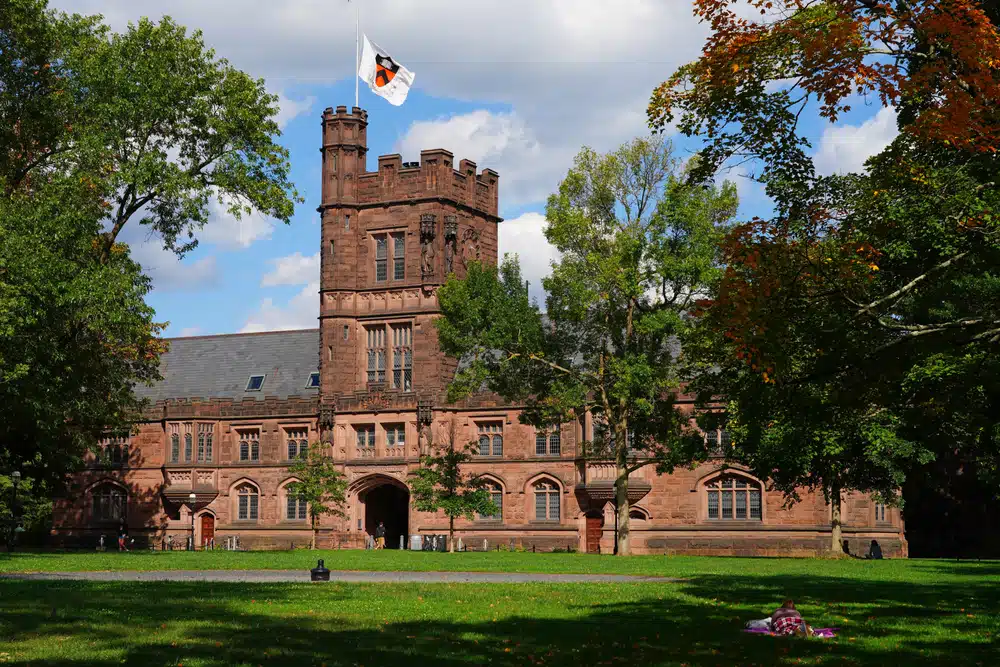Acing Your Princeton Interview: Tips and Strategies
The Princeton University interview process can seem daunting. With the right amount of preparation, though, it can become an insightful conversation and a great opportunity to show your unique capabilities and potential. This article will provide tips and strategies to help you deliver a memorable Princeton interview performance.
Understanding the Purpose of the Princeton Interview
Interviews are a crucial part of the application process and shouldn’t be underestimated. The Princeton interview is an opportunity for the university to gain additional insights about you that may not come through in your application. In the following discussion, we’ll explore the role of interviews and the attributes Princeton values in its students.
The Role of the Interview in the Admissions Process
The optional interview at Princeton supplements the written application by providing another dimension to your character, capabilities, and ambitions. It helps the admissions committee clarify your interests, motivations for applying, and how you could contribute to, and benefit from, the Princeton community.
Princeton University provides the opportunity for alumni interviews, which are entirely optional. These interviews occur after the Admission Office has received your application. You have the choice to decline the interview in the Princeton Supplement, and this decision will not affect your chances of admission negatively.
The interview is a valuable opportunity for you to demonstrate your communication skills and personality. It provides a face-to-face interaction that allows the interviewer to assess your ability to articulate your thoughts and engage in meaningful conversation. This platform goes beyond the confines of your application, enabling you to present a more comprehensive and holistic picture of who you are.
During the interview, you can discuss topics that hold significance for you and seek insights from someone who has experienced Princeton. This not only enhances your understanding of the institution but also gives the interviewer valuable insights into your interests and motivations.
Furthermore, interviews offer applicants the chance to articulate their thoughts and commitments, showcasing attributes such as cognitive agility, passion, and dedication – qualities that may not be easily conveyed through a standard application.
Through this interactive experience, the admissions committee gains a clearer understanding of your critical thinking abilities, effective self-expression, and capacity to engage in intellectual discourse.
It’s important to note that not every applicant is guaranteed the opportunity for a Princeton interview, as it depends on the availability of alumni in their respective regions. Nevertheless, dedicated alumni make concerted efforts to contact the majority of applicants every year.
In the event that an applicant does not receive an interview for any reason, it will not place them at a disadvantage, given that the interview is optional.
Furthermore, it should be noted that on-campus interviews are unavailable, and there is a strict prohibition against any form of recording during these interviews, whether by the interviewer or the applicant. Additionally, students participating in the QuestBridge National College Match will not be able to complete an interview due to timing constraints.
What Princeton Looks for in Prospective Students
Princeton University values intellectual vitality, extracurricular achievements, personal character, and leadership potential. They want students who are not only academically exceptional but also contribute positively to their communities.
A Princeton interview provides an opportunity to communicate these features in a real-time conversation. During the interview, you can highlight your intellectual curiosity and passion for learning. Discussing your academic pursuits, research interests, and any projects or initiatives you have undertaken can demonstrate your commitment to intellectual growth and exploration.
Furthermore, demonstrating a thoughtful understanding of Princeton’s curriculum, unique culture, and resources can communicate genuine interest and suitability for the institution. Researching the university beforehand and asking insightful questions during the interview can indicate your enthusiasm for becoming a part of the Princeton community.
Additionally, the interview allows you to showcase your extracurricular involvements and leadership experiences. Discussing your contributions to clubs, organizations, or community service initiatives can demonstrate your ability to make a positive impact beyond the classroom.
Overall, the Princeton interview is an opportunity for you to go beyond the confines of your application and present a more holistic view of yourself. It allows the admissions committee to assess your fit with the university’s values, culture, and academic environment. Embrace this chance to showcase your unique qualities and aspirations, and make the most of this important step in your application process.
Preparing for Your Princeton Interview
Thorough preparation is key to a successful interview. This consists of researching about Princeton, reflecting on your own accomplishments, and anticipating common interview questions.
When it comes to researching Princeton University, it’s not just about skimming through its website. Understanding Princeton’s values, programs, and opportunities shows your desire to be part of the academic and social community. Take the time to delve deep into their website, exploring various departments, clubs, and organizations that align with your interests.
Additionally, speaking to current students or alumni can provide valuable insights into the university’s culture and community. Keeping abreast of their latest research and initiatives can demonstrate your genuine interest in staying up-to-date with Princeton’s academic advancements.
Conveying your enthusiasm and fit for the university in your responses can make a positive impression on your interviewer. Highlight specific aspects of Princeton that resonate with you and explain how they align with your academic and personal goals.
Whether it’s their renowned faculty, unique research opportunities, or vibrant campus life, be sure to articulate why Princeton stands out to you among other institutions.
Reflecting on your academic and personal achievements is another crucial aspect of interview preparation. Take the time to review your academic journey, personal challenges, meaningful experiences, and accomplishments before the interview.
This process not only helps you articulate your stories eloquently but also allows you to link them to your future aspirations at Princeton. By connecting your past experiences to your goals at the university, you can convey your unique value proposition and demonstrate how Princeton can help you further develop and succeed.
Anticipating common college interview questions can help structure your thoughts and responses. While it’s impossible to predict every question that may come up, there are some commonly asked ones that you can prepare for. Basic questions about your academic history, interest in Princeton, future goals, strengths, and weaknesses almost always come up.
Take the time to reflect on these areas and think about how you can present yourself in the best light. However, it’s important to remember that while preparation is essential, it’s equally important to emote spontaneity even in rehearsed responses. Authenticity stands out and can leave a lasting impression on your interviewer.
Remember, the Princeton interview is an opportunity for you to showcase your passion, intellect, and potential. By thoroughly preparing, researching Princeton, reflecting on your achievements, and anticipating common interview questions, you can approach the interview with confidence and make a lasting impression on the admissions committee.
Mastering the Art of Communication
Effective communication is the cornerstone of a successful interview; it is essential to project confidence, listen actively, and manage non-verbal aspects of communication.
When it comes to projecting confidence and authenticity, there are a few key strategies to keep in mind. First and foremost, maintaining good posture and a strong presence can set a positive tone and make the conversation more engaging. Standing tall and using open body language can convey a sense of self-assurance and professionalism.
Another important aspect of projecting confidence is being comfortable with silence. It’s natural to feel the need to fill every moment with words, but allowing for pauses can actually demonstrate confidence and thoughtfulness. Take a moment to gather your thoughts before responding, and don’t be afraid to take a breath and compose yourself.
Authenticity is also crucial in communication. Reflecting your true personality and values not only garners respect but also creates an enduring impression. It’s important to be genuine and sincere in your responses, allowing your true self to shine through. This will not only make you more relatable but also help you connect with the interviewer on a deeper level.
Active Listening and Thoughtful Responses
Active listening is a vital skill that can greatly enhance your communication abilities. It involves fully understanding the interviewer’s question and responding effectively. To actively listen, focus your attention on the speaker, maintain eye contact, and avoid distractions.
Show genuine interest in what the interviewer is saying by nodding to show understanding and using verbal cues like “I see” or “That’s interesting.”
When answering questions, it’s important to provide thoughtful and well-rounded responses. One effective technique is to weave in your personal experiences and ambitions, always tying them back to Princeton and your desire to contribute to and benefit from the university community.
By doing so, you demonstrate your ability to connect your own experiences and goals with the values and opportunities that Princeton offers.
Remember to be concise and clear in your responses, avoiding rambling or going off on tangents. It’s important to get to the point while providing enough detail to support your answer. Practice active listening and thoughtful responses beforehand to ensure you are prepared for any question that may come your way.
Non-Verbal Communication Tips
Non-verbal cues play a significant role in communication and can greatly impact how your message is received. There are several key tips to remember when it comes to non-verbal communication.
Maintaining eye contact is crucial as it shows attentiveness and engagement. By looking directly into the interviewer’s eyes, you convey confidence and interest in the conversation. However, be mindful not to stare excessively, as this can come across as intimidating.
In addition to eye contact, a firm handshake is another important non-verbal cue. A handshake is often the first physical interaction you have with the interviewer, and a firm grip can convey confidence and professionalism. Practice your handshake beforehand to ensure it is neither too weak nor too overpowering.
While professionalism is important, it’s also essential to remember that being professional doesn’t mean being stiff. Genuine smiles can break the ice and create a pleasant atmosphere. Smiling not only shows that you are friendly and approachable but also helps to build rapport with the interviewer.
Lastly, be aware of your body language throughout the interview. Avoid crossing your arms, as it can create a barrier and make you appear closed off. Instead, keep your arms relaxed and use open gestures to convey openness and receptiveness.
By mastering the art of communication, you can greatly enhance your chances of success in an interview. Remember to project confidence and authenticity, actively listen and respond thoughtfully, and pay attention to your non-verbal cues. With these skills, you’ll be well-equipped to navigate any interview with ease.
Navigating the Interview Day
The day of the Princeton interview requires special attention, which includes dressing appropriately, being punctual, and observing post-interview etiquette.
It’s important to note that the interview comprises informal conversations lasting between 30 to 45 minutes, during which you are free to delve into topics of personal significance and pose questions to individuals with firsthand experience at Princeton University.
When it comes to choosing your interview attire, making a good impression is key. Business casual is a reliable choice for an interview outfit as it balances professionalism and approachability. This way, you can align your attire with their expectations. Despite the informal nature of the interview, a neat and respectful outfit can convey your seriousness and respect for the interview process.
Now, let’s talk about the importance of punctuality. Being on time, if not early, for your interview is crucial. It shows your commitment, responsibility, and respect for others’ time. Arriving late can leave a negative impression and even cost you the opportunity.
If an unforeseen issue arises causing delay, inform the interviewer as soon as possible and apologize upon arrival. Honesty and transparency go a long way in maintaining a positive impression.
After the interview, it’s important to observe post-interview etiquette. Extending a message of gratitude to your interviewer is always a nice gesture. It not only demonstrates your appreciation but also serves as a subtle reminder of your interest in the position or institution.
Sending a personalized thank-you email or note within 24 hours of the interview is a common practice. It allows you to express gratitude for the opportunity to interview and reiterate your interest in the role or program.
Last but not least, remember to breathe, stay calm, and enjoy the experience. Each interview is an opportunity to learn, grow, and connect with impressive individuals. Make the most of of your Princeton interview. Interviews can be nerve-wracking but try to view them as a chance to showcase your skills and personality.
Remember, the interviewer is also looking for the right fit, so be yourself and let your genuine enthusiasm shine through.
AdmissionSight stands as a valuable resource to guide you through the intricacies of the Princeton University admissions process. Our team’s expertise and insights can help you prepare effectively, from fine-tuning your application to making informed choices regarding interviews and other important aspects of the admission journey.
With AdmissionSight’s support, you can navigate the Princeton admissions process with confidence and increase your chances of achieving your academic goals at this prestigious institution.









































